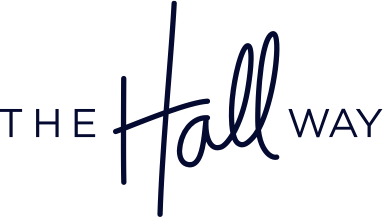2017: Goodbye agency, hello indie specialist network
If you already work with an agency, or you’re considering hiring one or working at one, do me a solid and noodle this: Though some organizations still rely on agencies for public relations, advertising, creative, and digital services support, there are amazing alternatives out there. They’re worth considering, and I’ll tell you why …
The agency of the future is not an agency
Earlier this year, when Matt Kendall’s The agency of the future is not an agency made the rounds in my newsfeed, I was thrilled. I had just returned to management consulting, and the article struck a chord. It asked, “How can any one company house the talent required to deliver the optimal solution for each business challenge?” It’s nearly impossible for an agency to retain teams with an infinitely diverse list of specialties. As Kendall says, “No agency can provide that.“
Instead, he anticipates that “new models will emerge that are distributed and nodal in nature.” The one he’s most excited by is a “co-operative model of distributed and autonomous specialist networks“. Music to my ears!
Agency addiction
Don’t get me wrong … I loved my time at digital agencies. They provided me with constant access to new and different work; stimulating learning opportunities; and smart, talented, and fun people. Working at an agency made it hard to get set in my ways. The rapidly changing environment meant I’d often manage projects that took me out of my comfort zone, which was great for my portfolio. People who are tenacious, determined, and maybe even a little survivalist thrive in an agency model. We learn that through research and experimentation we can quickly become adept at projects that initially seemed beyond us. Paired with the fact that digital tools and processes are always evolving, that’s a recipe for constant stimulation. And that’s pretty addictive.
The downside
Despite all the fantastic, adrenaline-filled work highs, agencies can be a rough place. They face enormous financial pressures and shrinking margins because they do try to retain those diverse skill sets. Project pressures make it hard for them to formally provide employees with the necessary time to continuously hone their crafts. There’s not much room for professional development when you’re maintaining a frenetic pace. That intense speed is also why fatigue and burnout are rampant at agencies. What’s more, the financial pressures make it difficult for them to prioritize quality above all else, and that doesn’t make high achievers happy.
Where’s the value?
Taking all of this into account, I put myself in my clients’ shoes. I wondered what value they got from working with an agency.
The Agency Management Institute suggests that many people view working with an agency as a “necessary evil to gain specialized expertise”. Hiring an agency allows you to access specialized skills on an as-needed basis. They can give you a valuable external perspective while costing less than having your own full-time staff.
So why would you be better off working with a network of indie specialists instead of agencies? Because in the network model everyone has something to gain from the relationships — especially the client. Working with a network of hand-selected individuals means you can be sure everyone is at the top of their game, not stretched to their breaking point by an agency model.
A new path
I went out on my own when I realized I didn’t have to choose between the best of working for an agency and working alone. I can have it both ways.
Over the years, I’ve cultivated a network of highly skilled independent specialists who I deeply respect and trust. Now I can share these partners with clients when their talents are required. Working with them lets me access everything I loved about working at an agency while eliminating everything I disliked. Plus, I have more time to focus on learning new skills, and more control over delivering high-quality products and services.
I’ve found focus and purpose by sharing challenging projects with a small group of people I can regularly call on — a researcher, a data scientist, a communications specialist and writer, a user experience designer, and a usability lead. We all have a similar work ethic, deep respect for each other’s skills, and an appetite to deliver great value to our clients. I love watching different combinations of these people working together. It’s rewarding to form a tight-knit group while we tackle a project and then disband and carry on with our own projects at the end of it all. Such a great model for everyone.
Have it all
After six months of working in this new model, I can tell you it’s amazing! I love it. I’m working on fascinating projects with top-notch consultants, while still controlling the quality of the work we produce for clients and avoiding the financial pitfalls agencies can face.
The key message? If you’re an organization that relies on agencies to help you define and execute your strategic priorities, know that smaller, more nimble groups of independent consultants can deliver phenomenal results. If you work at an agency and are nervous to go out on your own, remember:
“Small is beautiful. You don’t need scale to take on bigger, more interesting projects. Connect with other like-minded indies and specialists to go up against the incumbents and win the good stuff with a whole new approach. And you still get to do what you love to do, the way you love to do it.”
-Matt Kendall
Have you been working with a distributed network of independent specialists? Are you an indie specialist? I’d love to hear about your challenges and opportunities. Reach out if you want to share lessons learned and upcoming opportunities.
